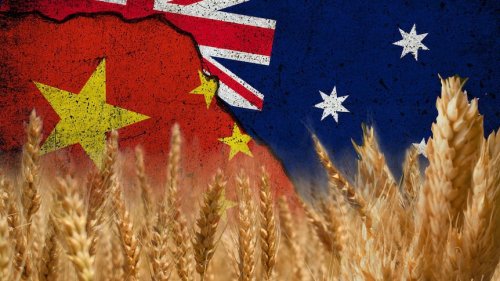In a significant development signaling a thaw in diplomatic tensions, China has announced its decision to eliminate tariffs on Australian barley. This move comes as a crucial step towards restoring amicable trade relations between the two nations after years of strained ties. The decision has been met with optimism from both sides, with Australia reciprocating by withdrawing its trade complaint. This breakthrough holds the promise of rekindling economic cooperation and bolstering bilateral ties.
Tariff Reversal Marks Diplomatic Progress
China’s commerce ministry has declared that the imposition of anti-dumping duties on Australian barley imports is “no longer necessary.” This assertion stems from shifts in the local market dynamics, which have prompted China to reevaluate its trade stance. After a prolonged period of economic discord, this policy reversal stands as a tangible testament to the evolving diplomatic landscape between the two nations.
Mutual Benefits Emerge Amid Tariff Removal
Australia, in response to China’s conciliatory gesture, has chosen to drop its complaint against China at the World Trade Organization (WTO). This reciprocal action showcases the willingness of both nations to move beyond their differences and rekindle economic collaboration. Australian Foreign Minister Penny Wong lauds the decision, highlighting the positive outcomes it brings for Australian producers and Chinese consumers alike. The removal of these barriers is a testament to the collaborative efforts undertaken by government bodies and industries to navigate through this trade challenge.
Pathway to Reconciliation: The Political Landscape
The tariff elimination is a significant step towards thawing the icy relations that have persisted between Australia and China. The shift in power with the election of Anthony Albanese’s center-left Labor Party last year has contributed to this diplomatic breakthrough. This change in leadership has paved the way for a more open and pragmatic approach to resolving trade disputes and revitalizing economic interactions. Minister Wong’s announcement of suspending the WTO complaint in April marked a turning point, as Beijing agreed to reevaluate the tariffs, signaling a renewed willingness to engage in productive dialogue.
This development holds particular significance in the context of the past year’s tensions. The contentious issues that arose from Australia’s call for an international inquiry into the origins of the COVID-19 pandemic resulted in China imposing substantial tariffs on Australian exports including barley, beef, and wine, as well as an informal embargo on Australian coal. These actions have collectively caused a staggering loss of over 5 billion Australian dollars ($3.28 billion) in revenue.
China, being Australia’s largest trading partner for over 15 years, has historically accounted for about a third of the country’s trade. In the financial year 2020-21, the trade volume between the two nations stood at a substantial 267 billion Australian dollars ($175 billion). This pivotal decision to eliminate tariffs on Australian barley sets the stage for a resurgence in economic interactions, fostering shared growth and prosperity.
In conclusion, the announcement of China’s decision to drop tariffs on Australian barley signifies a vital step towards fostering diplomatic rapprochement and reinvigorating trade ties. With the removal of trade barriers and the withdrawal of complaints, both countries are poised to reap mutual benefits. This collaborative endeavor between nations showcases the power of dialogue and negotiation in overcoming even the most entrenched disputes.















